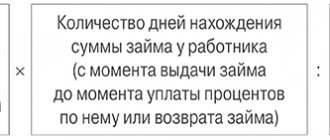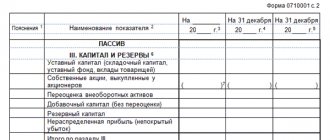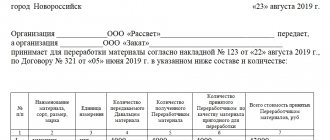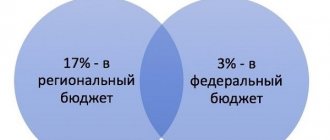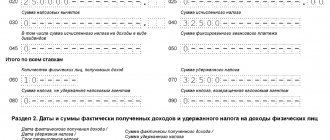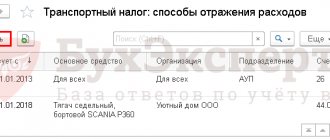Decision on payment of bonuses
To pay bonuses from retained earnings, the consent of the owners of the organization (founders, shareholders) to such expenditure of profits is required.
This rule applies to both LLCs and joint stock companies (clause 2 of Article 67.1 of the Civil Code of the Russian Federation). The decision to spend retained earnings in an LLC is documented in the minutes of the general meeting of founders. There are no mandatory requirements for the minutes of the general meeting of an LLC in the legislation. But there are details that are better to indicate. This is the number and date of the minutes, place and date of the meeting, agenda items, signatures of the founders.
In a joint stock company, minutes of the general meeting of shareholders are drawn up. The minutes of a joint stock company differ from the minutes of an LLC in that they are drawn up in two copies and have mandatory details. They are listed in paragraph 2 of Article 63 of the Law of December 26, 1995 No. 208-FZ and paragraph 4.29 of the Regulations approved by order of the Federal Financial Markets Service of Russia dated February 2, 2012 No. 12-6/pz-n.
In an LLC (consisting of one participant) and in a joint stock company (where all voting shares belong to one shareholder), the protocol is not drawn up (Article 39 of the Law of February 8, 1998 No. 14-FZ, paragraph 3 of Article 47 of the Law of December 26 1995 No. 208-FZ). In this case, the participant (shareholder) draws up a written decision to allocate net profit to pay bonuses.
Documenting
The basis for calculating a bonus is an order from the head of the organization to reward an employee (Form No. T-11) or a group of employees (Form No. T-11a). The employee (employees) must be familiarized with the order against signature (Section 1 of the instructions approved by Resolution of the State Statistics Committee of Russia dated January 5, 2004 No. 1).
Instead of standard forms of bonus orders, you can use independently developed forms of such documents (provided that they contain all the necessary details provided for in Part 2 of Article 9 of the Law of December 6, 2011 No. 402-FZ).
This procedure follows from Part 4 of Article 9 of the Law of December 6, 2011 No. 402-FZ and is confirmed by the letter of Rostrud of February 14, 2013 No. PG/1487-6-1.
Payment of bonuses from the cash register can be made:
- according to payroll or payroll (according to forms No. T‑49 or No. T‑53);
- according to an expense cash order (according to form No. KO-2).
This is stated in paragraph 6 of Bank of Russia Directive No. 3210-U dated March 11, 2014.
Accounting
In accounting, reflect the accrual of bonuses at the expense of net profit by posting:
Debit 91-2 Credit 70
– bonuses paid to employees from net profit have been accrued.
This posting must be made regardless of whether the net profit of previous years or the current year is used to pay the bonus (including profit based on the results of the quarter, half a year, nine months). The fact is that such expenses cannot be reflected using account 84. These will be other expenses that also affect the financial result of the organization. Accordingly, such expenses must be reflected in the debit of account 91-2. Similar explanations are given in letters of the Ministry of Finance of Russia dated December 19, 2008 No. 07-05-06/260 and dated June 19, 2008 No. 07-05-06/138.
Capital investments when purchasing fixed assets
Since capital investments (purchase of fixed assets) involve large expenses, owners often order them to be paid from a special fund created from retained earnings. For example, at the expense of the production development fund.
It is important that the purchase of fixed assets must be reflected in the usual manner - through accounting accounts 08 (07) and 01. It does not matter from what sources the company paid for capital investments (from a special fund or not).
https://www.youtube.com/watch?v=ytaboutru
If the company pays for capital investments (purchase of property) using special funds, then also make internal entries to account 84 to show the use of funds.
What they often do wrong. They reflect the purchase of fixed assets at the expense of retained earnings, bypassing accounts 08 (07) and 01. Such assets are not depreciated either in accounting or tax accounting.
How to reflect it in accounting. Account for purchased fixed assets according to the general rules of PBU 6/01. That is, collect the initial cost in account 08. And after commissioning, make a posting to the debit of account 01 and the credit of account 08.
In addition, it is worth creating separate sub-accounts where the company will reflect transactions using funds from a special fund (similar to expenses for bonuses).
Example 3: The company acquired a fixed asset using a special fund
At the general meeting of participants of Meteor LLC following the results of 2013, the owners decided to create a special production development fund at the expense of retained earnings.
The participants plan to use it to buy new production equipment. The size of the created fund is 1 million rubles. We invite you to read: Receiving payments under compulsory motor liability insurance after an accident - procedure, rules and terms of payment
At the expense of the fund, the LLC purchased a machine in June 2014 worth 590,000 rubles, including VAT - 90,000 rubles. The company put the machine into operation that same month. The accountant made the following entries in the accounts:
Debit 84 subaccount “Retained earnings of previous years” Credit 84 subaccount “Created production development fund” - 1,000,000 rubles. — a production development fund was created using net profit;
Debit 08 Credit 60 - 500,000 rub. (590,000 – 90,000) - reflects the cost of a new machine;
Debit 19 Credit 60 - 90,000 rub. — input VAT is reflected;
Debit 60 Credit 51 - 590,000 rub. — the machine was paid to the supplier;
Debit 84 subaccount “Created production development fund” Credit 84 subaccount “Used production development fund” - 590,000 rubles. — reflects the use of a special fund;
Debit 01 Credit 08 - 500,000 rub. — the property was put into operation;
Debit 68 subaccount “Calculations for VAT” Credit 19 - 90,000 rubles. — accepted for VAT deduction.
How to reflect it in tax accounting. It does not matter how the company pays for capital investment costs. In any case, you need to decide whether the property is depreciable or not. Thus, fixed assets costing no more than 40,000 rubles. can be written off as a lump sum as material expenses (Article 254 of the Tax Code of the Russian Federation). More expensive property must be depreciated.
When else do you need to make postings to account 84?
Accounting legislation provides for several more situations when it is necessary to use account 84 “Retained earnings (uncovered loss).”
1. When correcting significant errors in accounting found after the approval of the financial statements. In this case, entries are made in the current period. For example, by the debit of account 84 and the credit of account 70 (unaccounted wages were found).
2. When writing off amounts of additional valuation of a fixed asset, if the company sells it. When disposing of a fixed asset that was previously revalued, the revaluation amounts are written off from account 83 “Additional capital” to account 84 (clause 15 of PBU 6/01).
3. When increasing or decreasing the authorized capital at the expense of retained earnings. In this case, you need to make an entry to the debit of account 84 and the credit of account 80 (increase in authorized capital) or a reverse entry (decrease in capital).
The main thing to remember
1 Annual and interim dividends (income from participation) are accrued based on the decision of the general meeting of the company’s owners.
2 Expenditures on capital investments and bonuses from special funds are reflected in the accounts in the general manner.
More about accounting
Articles: “Income that inspectors will accurately check in your income statement” (“Glavbukh” No. 3, 2014); “The most important requirements for financial statements for 2013” (“Glavbukh” No. 3, 2014).
Document: PBU 10/99 “Expenses of the organization.”
Test The general meeting of participants of Vega LLC decided to distribute the net profit at the end of 2013 among all owners in proportion to their shares. Does the accounting department need to make any entries based on the decision of the general meeting of participants? No, account entries will need to be made on the date of payment of income. Yes, you need to make an entry on the debit of account 99 and the credit of account 75. Yes, you need to make an entry on the debit of account 84 and the credit of account 75. LLC participants can distribute net profit at the end of the year in proportion to their shares in the company. Then in accounting, based on the decision of the owners, it is necessary to make an entry on the debit of account 84 and the credit of account 75. This clearly follows from the Instructions for the use of the Chart of Accounts for accounting (approved by order of the Ministry of Finance of Russia dated October 31, 2000 No. 94n).
Personal income tax and insurance premiums
Regardless of the taxation system that the organization applies, the amount of premium paid from net profit is subject to:
- Personal income tax (subclauses 6 and 10, clause 1, article 208 of the Tax Code of the Russian Federation);
- contributions for compulsory pension (social, medical) insurance (Part 1, Article 7 of Law No. 212-FZ of July 24, 2009);
- contributions for insurance against accidents and occupational diseases (clause 1 of article 20.1 of the Law of July 24, 1998 No. 125-FZ).
Situation: in what month should the amounts of bonuses paid from net profit be included in the personal income tax base: in the month of accrual or in the month of payment?
The calculation of personal income tax depends on the frequency of awarding bonuses (monthly, quarterly, annual, one-time), as well as on whether the bonus is production or not.
Non-production bonuses are not part of the salary and therefore are not considered labor costs. Therefore, regardless of the frequency of accrual of such premiums, include them in the personal income tax tax base of the month in which they were paid (subclause 1, clause 1, article 223 of the Tax Code of the Russian Federation).
When paying a monthly production bonus, make the following entries for personal income tax withholding:
- on the last day of the month for which it was accrued (together with the salary), if the amount of the bonus does not depend on the achieved production results;
- in the month of payment of the bonus, if its amount depends on the achieved production results (for example, a percentage of sales for a manager).
It is explained this way. In the first case, the production monthly bonus is part of the salary accrued for the current month (this may be a fixed monthly amount). Therefore, it is included in the personal income tax base in the manner prescribed for wages. The date of receipt of income (for the purpose of calculating personal income tax) will be the last day of the month for which the salary and bonus were accrued (clause 2 of Article 223 of the Tax Code of the Russian Federation). On the same day, make a posting to withhold personal income tax. The bonus amount will be included in the personal income tax base for the month for which it was accrued.
In the second case, the monthly production bonus is an incentive payment. Its amount depends on the achieved production results, therefore such a bonus cannot be considered remuneration for the performance of job duties. In this case, the date of receipt of income is the day of payment (transfer to the employee’s account) of the bonus (subclause 1, clause 1, article 223 of the Tax Code of the Russian Federation). Make an entry for tax withholding at the time of payment of the premium.
The amount of the bonus accrued for a period of work of more than one month is included in the personal income tax tax base of the month in which it was paid. For more information about this, see How to calculate personal income tax from the amount of the annual bonus.
In the same order, calculate personal income tax on the amount of one-time bonuses.
The Ministry of Finance of Russia adheres to a similar position regarding determining the date of receipt of income in the form of bonuses (letters dated March 27, 2015 No. 03-04-07/17028, dated November 12, 2007 No. 03-04-06-01/383).
In cases where the bonus amount is included in the personal income tax tax base along with your salary, pay the tax in one payment order (together with your salary). If the premium amount is included in the personal income tax tax base in the month of payment, transfer the tax to the budget in a separate payment order. In particular, the need to issue a separate payment order may arise if the deadlines for transferring personal income tax for various payments during the month do not coincide. This conclusion can be made on the basis of paragraph 2 of Article 223 and Article 226 of the Tax Code of the Russian Federation. For more information about this, see How a tax agent can pay personal income tax to the budget.
The procedure for calculating other taxes depends on the tax system that the organization uses.
The magic of numbers
So, in 2021, based on the results of an on-site inspection, the Federal Tax Service imposed an additional 52 million rubles in taxes on the gold mining company, as well as 12.1 million rubles in sanctions. Tax officials recognized as unlawful payments to the director and executive director of the company, Kristina and Mikhail, who received 67.8 and 123.7 million rubles in 2021, respectively. As stated in the provision on bonuses and additional agreements to employment contracts, directors received bonuses in proportion to the gold mined if the conditions were met: the company finished the season with a profit and has no debts to contractors or the budget.
Number
Directors' bonuses were 44 times higher than the company's net profit
The tax authorities considered the size of the bonuses suspicious, especially considering that Christina and Mikhail are husband and wife. Two directors received 191.5 million rubles in 2016, which amounted to more than 80% of the company’s profit excluding management expenses and 44 times the company’s net profit. Moreover, the bonuses were paid with accounts payable of 241 million - contrary to the terms of the bonus provision. Officials calculated that the Lukiyanovs, who are not directly involved in gold mining, received 94.95% of the salary fund as bonuses, and the remaining 47 employees received only 5.05%.
In addition, during an on-site audit, tax officials discovered a corporate conflict between the management couple and a new member of the company, who became one of the founders of the company in February 2017. She filed a lawsuit in the public interest and won: the court ordered the return of the paid premiums as damages (case No. A70-17067/2017). As stated in the documents in the case, the spouses withdrew money from the company and caused harm to it.
Unreasonable reduction in premium is illegal
Read more…
Having analyzed this evidence, the Federal Tax Service adjusted the income tax base: it excluded the amounts of premiums and insurance contributions. Tax officials concluded that the bonuses do not correspond to the company’s economic results in 2021 and average market conditions in the gold mining industry.
Income tax
When calculating income tax, the premium paid from net profit is not included in expenses (Clause 1, Article 270 of the Tax Code of the Russian Federation). Similar clarifications are in letters of the Federal Tax Service of Russia dated August 20, 2014 No. SA-4-3/16606, dated May 20, 2010 No. ShS-37-3/1977. Although these letters are addressed to state unitary enterprises, the conclusions made by the tax service are also relevant for commercial organizations.
Bonuses paid from special-purpose funds (Clause 22, Article 270 of the Tax Code of the Russian Federation) are taken into account according to the same rules.
Situation: what bonuses are considered paid from special purpose funds?
The law does not say what is considered special-purpose equipment. According to the tax service, special-purpose funds are funds identified by the owners of the organization for the payment of bonuses (see, for example, letters of the Federal Tax Service of Russia for Moscow dated March 23, 2006 No. 21-08/22586, dated December 15, 2005 No. 21-11/92841). Controlling agencies include, in particular, various types of bonus funds (material incentive funds) formed from net profit as special-purpose funds (letter of the Ministry of Finance of Russia dated November 6, 2008 No. 03-11-04/2/165, Federal Tax Service of Russia on Moscow dated December 28, 2004 No. 28-08/84326).
This approach is also confirmed by arbitration practice (see, for example, decisions of the Federal Antimonopoly Service of the Central District dated April 7, 2005 No. A14-13070-2004-409/28, West Siberian District dated October 10, 2005 No. F04-5674/2004 ( 15453-A27-18), Moscow District dated April 19, 2005 No. KA-A40/2661-05, Central District dated August 30, 2005 No. A64-6875/04-11).
In order for the payment of bonuses to fall under paragraph 22 of Article 270 of the Tax Code of the Russian Federation (the bonuses were paid from special-purpose funds), the decision of the owners (founders) of the organization to allocate net profit to pay bonuses is not enough. It is also necessary to record the owners’ decision to create a fund to pay bonuses from net profit. The LLC must determine the decision to create such funds in its charter (Article 30 of the Law of February 8, 1998 No. 14-FZ). There is no such requirement for a joint stock company. The decision to create a fund for paying bonuses in a joint stock company is made by shareholders at a general meeting (subclause 11, clause 1, article 48 of the Law of December 26, 1995 No. 208-FZ). If such a decision is made and recorded in the minutes of the general meeting of shareholders, then the use of the funds of such a fund may fall within the competence of the board of directors of the company (subclause 12, clause 1, clause 2, article 65 of the Law of December 26, 1995 No. 208-FZ) .
Now regarding accounting. If the organization decided to create special funds at the expense of net profit, then to account for their movement, the accountant can keep analytical accounting using account 84. And the costs themselves meet the definition of expense, which is given in PBU 10/99. This means that the score 91-2 must be used. The correctness of this approach is confirmed by the Ministry of Finance of Russia in the recommendations from the appendix to the letter of the Ministry of Finance of Russia dated February 6, 2015 No. 07-04-06/5027.
Situation: is it possible to take into account contributions for insurance against accidents and occupational diseases from the amount of premium paid from net profit when calculating income tax?
Answer: yes, you can.
The organization charges contributions for insurance against accidents and occupational diseases in the amount of premiums at the expense of net profit in accordance with Russian legislation. This means that the amount of contributions can be taken into account when calculating income tax. They are taken into account as part of other expenses associated with production and sales (subclause 45, clause 1, article 264 of the Tax Code of the Russian Federation).
An example of how premiums paid from net profit are reflected in accounting and taxation. The organization applies a general taxation system
LLC "Torgovaya" applies a general taxation system (accrual method). Income tax is paid monthly.
In 2015, by decision of the general meeting of participants, retained earnings from previous years were used to pay bonuses to employees in the amount of 5,000 rubles. for Trade Worker's Day.
Trade Worker's Day is the fourth Saturday in July. Bonuses were awarded along with salaries for July.
The bonus was paid on the deadline set for the payment of salaries for July - August 5. On the same day, insurance premiums calculated from the premium amount were transferred to the budget.
Among other employees, the manager of the organization A.S. was awarded. Kondratiev.
The bonus amount will be included in the personal income tax tax base for July. Kondratiev has no rights to deductions for personal income tax.
The organization calculates contributions to compulsory pension (social, medical) insurance according to the basic tariff. Contributions for insurance against accidents and occupational diseases - at a rate of 0.2 percent.
The accountant reflected the accrual and payment of the bonus to Kondratiev as follows.
In July:
Debit 91-2 Credit 70 – 5000 rub. – the bonus is accrued at the expense of net profit;
Debit 91-2 Credit 69 subaccount “Settlements with the Pension Fund” – 1100 rubles. (RUB 5,000 × 22%) – pension contributions accrued;
Debit 91-2 Credit 69 subaccount “Settlements with the Social Insurance Fund for social insurance contributions” – 145 rubles. (RUB 5,000 × 2.9%) – social insurance contributions are accrued in the event of temporary disability and in connection with maternity in the Social Insurance Fund of Russia;
Debit 91-2 Credit 69 subaccount “Settlements with FFOMS” – 255 rubles. (RUB 5,000 × 5.1%) – contributions for health insurance to the Federal Compulsory Medical Insurance Fund are accrued;
Debit 91-2 Credit 69 subaccount “Settlements with the Social Insurance Fund for contributions to insurance against accidents and occupational diseases” - 10 rubles. (RUB 5,000 × 0.2%) – contributions for insurance against accidents and occupational diseases are calculated from the premium amount.
In August:
Debit 70 Credit 68 subaccount “Personal Income Tax Payments” – 650 rubles. (RUB 5,000 × 13%) – personal income tax is withheld from the premium amount;
Debit 70 Credit 50 – 4350 rub. (5000 rub. – 650 rub.) – bonus paid.
In July, when calculating income tax, the accountant included in expenses insurance premiums accrued from the premium amount (1,100 rubles + 145 rubles + 255 rubles + 10 rubles = 1,510 rubles).
The Russian Ministry of Finance adheres to the same position in letter dated March 5, 2005 No. 03-03-01-04/1/90.
The bonus is issued by order of the manager
When there is no decision of the owners to allocate profits to bonuses at all, but only an order from the manager, then the amount of bonuses is considered a non-operating expense and is written off to the “Other expenses” subaccount of account 91.
Example 2. In May 2004, the driver of Meteorit LLC, Sidorov N.A. is retiring. By order of the director, he is paid a one-time bonus of 3,000 rubles. There is no decision of the founders to pay this bonus.
Debit 91 subaccount “Other expenses” Credit 73
- 3000 rub. — the bonus paid to Sidorov in connection with his retirement was written off as non-operating expenses.
Next, let's move on to tax accounting. Let's see how the taxes that are levied on non-production bonuses depend on the paperwork.
Once again, let's first deal with personal income tax. It all depends on the form in which the bonuses are paid. For example, if an employee is given a cash bonus, then the entire amount must be included in his taxable income.
However, management can reward the employee with a gift. If the total cost of gifts for the year does not exceed 2,000 rubles, then there is no need to tax them on personal income tax (Clause 28, Article 217 of the Tax Code of the Russian Federation). And if it exceeds, then the amount exceeds 2000 rubles. must be included in the employee's taxable income.
We suggest you read: How to bring a debtor to trial for fraud
Example 3. In May 2004, Simonov E.S. at ZAO Galaktika was 15 years. The management of JSC Galaktika decided to reward the employee for his years of service and gave him a color TV, the cost of which was 7,000 rubles.
Simonov's salary is 8,000 rubles. By May, his total taxable income exceeded RUB 20,000. Therefore, the employee is not provided with the standard personal income tax deduction.
(8000 rub. 7000 rub. - 2000 rub.) x 13% = 1690 rub.
Income tax and unified social tax. Whether bonuses paid by order of the head of an organization will be subject to income tax and unified social tax, depends on whether they are specified in employment contracts or other internal documents of the organization (for example, in the regulations on remuneration or regulations on bonuses).
As a rule, non-production bonuses are given spontaneously, only on special occasions. That is, it is not always possible to provide for them in documents regulating wages. In addition, not every company will undertake the obligation to issue such bonuses on an ongoing basis.
At the same time, at many enterprises it is customary to give bonuses to employees, for example, in honor of a professional holiday. And usually such payment is stipulated in the bonus regulations. Therefore, we will consider two cases - when a non-production bonus is specified in the bonus regulations and when it is not.
Of course, the most common situation is when a non-production bonus is not provided for by the current remuneration system. That is, it is not provided for either by the bonus regulations or by employment contracts with employees. Then, according to clause 21 of Article 270 of the Tax Code of the Russian Federation, this payment cannot be excluded from the taxable income of the enterprise. Consequently, it is not necessary to accrue unified social tax and contributions to the Pension Fund of the Russian Federation (clause 3 of Article 236 of the Tax Code of the Russian Federation).
Well, what if the bonus is still mentioned in the bonus regulations? As a rule, all employment contracts contain a reference to the provision on bonuses that applies to the enterprise. Therefore, in this situation, the accountant must be guided by clause 25 of Article 255 of the Tax Code of the Russian Federation. It says that expenses provided for in employment contracts are taken into account when calculating income tax. This means that a single social tax and pension contributions will have to be charged on this payment.
Obviously, for organizations that do not apply the regressive scale of the unified social tax, it is more profitable to pay income tax at a rate of 24 percent than the unified social tax and contributions to the Pension Fund of the Russian Federation at a rate of 35.6 percent. Therefore, it is better not to stipulate non-production bonuses in documents regulating wages at the enterprise.
Example 4. Sputnik LLC does not apply a regressive scale for the unified social tax. In May 2004, employees of this organization participated in the Northern Administrative District of Moscow football tournament and took first place. The management of Sputnik LLC decided to reward them with bonuses for this.
This payment is not provided for in the organization’s bonus regulations. Therefore, the accountant of Sputnik LLC cannot reduce taxable profit for it. But this amount will not be included in the base for the unified social tax and contributions to compulsory pension insurance.
Regardless of whether a non-production bonus is provided for in the wage system or not, it is subject to contributions for compulsory insurance against industrial accidents and occupational diseases.
simplified tax system
Organizations applying the simplification have the right to decide to allocate the funds remaining after paying the single tax to pay bonuses.
Example of taxation of bonuses paid from retained earnings of the previous year. The organization applies a simplified tax system and pays a single tax on income
Alpha LLC uses simplification. A single tax is paid on income. The Alpha bonus regulations provide for the payment of bonuses for Defender of the Fatherland Day to all male employees. Based on the minutes of the general meeting of shareholders, bonuses are paid from retained earnings for the previous financial year. Employment contracts do not provide for the payment of bonuses for Defender of the Fatherland Day.
In February, among other employees, the head of workshop No. 1, V.K., was awarded a bonus. Volkov. The bonus amount was 13,000 rubles. The bonus was paid on February 20.
The bonus amount will be included in the personal income tax base in February. Volkov has no rights to deductions for personal income tax.
Personal income tax on the premium amount is equal to: 13,000 rubles. × 13% = 1690 rub.
The organization calculates contributions to compulsory pension (social, medical) insurance according to the basic tariff. Contributions for insurance against accidents and occupational diseases - at a rate of 0.2 percent.
In February, the accountant calculated insurance premiums:
- to the Pension Fund of Russia - in the amount of 2860 rubles. (RUB 13,000 × 22%);
- in the Social Insurance Fund for social insurance - in the amount of 377 rubles. (RUB 13,000 × 2.9%);
- in the Federal Compulsory Medical Insurance Fund for health insurance - in the amount of 663 rubles. (RUB 13,000 × 5.1%);
- for insurance against accidents and occupational diseases - in the amount of 26 rubles. (RUB 13,000 × 0.2%).
Types of bonuses
A bonus payment is an additional remuneration for achieved production or other indicators; in accounting, bonuses are included in wages.
The payment procedure is regulated by the regulations on remuneration, regulations on bonuses or other local regulations of the organization. The bonus accrual is:
- permanent (paid monthly) or one-time;
- established as a percentage of the salary or in a fixed amount;
- related to the employee’s performance or paid in connection with a holiday.
OSNO and UTII
Let’s say a bonus is awarded to an employee who is simultaneously engaged in the activities of an organization on the general taxation system and in activities subject to UTII. The bonus itself will not affect your tax liability in any way. After all, when calculating income tax, this payment is not taken into account. Premiums paid also do not affect the amount of UTII.
At the same time, insurance premiums that are accrued from bonuses to employees engaged in the organization’s activities on the general taxation system and in activities subject to UTII must be distributed. This is due to the fact that organizations that combine the general tax regime and UTII must keep separate records of income and expenses (clause 9 of Article 274, clause 7 of Article 346.26 of the Tax Code of the Russian Federation).
Insurance premiums that are accrued for bonuses to employees engaged in only one type of activity do not need to be distributed.
What are the dangers of errors in accounting for expenses from retained earnings?
If transactions on accounts are incorrectly reflected, inspectors may fine the company 10,000 or 30,000 rubles. (Article 120 of the Tax Code of the Russian Federation). The fact is that inspectors may regard any errors in the accounts as gross errors in accounting for income and expenses. But that is not all.
For example, writing off dividends or bonuses from a special fund as tax expenses will lead to an overstatement of profits and arrears. Moreover, if you reflect bonuses or capital investments from special funds bypassing expense accounts, then the retained earnings of the current year and the amount of dividends will be overstated. In this case, claims from auditors are possible.
